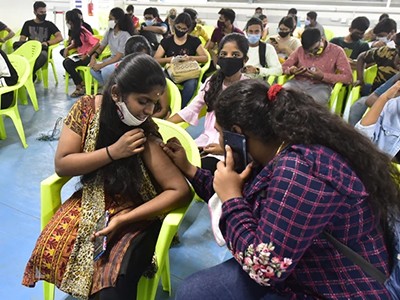After Hurricane Helene hit the United States in September 2024, the Federal Emergency Management Agency (FEMA) implemented standard disaster-response measures. Many of Florida’s residents are familiar with FEMA, because of their state’s long collaboration with the agency. But many people living in North Carolina and Tennessee were not. False claims that FEMA was confiscating land and diverting funds from affected residents to migrants gained traction on social media. These prompted community members to be suspicious of FEMA workers, triggering violence and delaying aid and recovery in these areas.
The erosion of trust in public institutions is a pressing problem for governments. It hinders their ability to respond to challenges, such as extreme weather and pandemics, and to coordinate collective action during crises. Misinformation spread during disasters further undermines people’s confidence in official guidance.
Science’s big problem is a loss of influence, not a loss of trust
The message for public agencies is clear: engage with communities long before a crisis occurs, so that they know what to do. Trust must be built through participatory processes. Collaboration with trusted local sources can help to strengthen both disaster-risk knowledge and preparedness. Local and national authorities, including weather agencies, must proactively develop transparent communication channels, making their services known and accessible, so that people can distinguish official information from disingenuous claims in times of crisis.
Too often, governments assume that there is universal trust in the public establishment — overlooking how experiences of injustice and discrimination have created deep divisions between some communities and the institutions meant to serve them. Black communities in the United States, for instance, have long been facing health inequities.
Misinformation gains traction when people feel their voices are not heard. This means that listening to local populations and addressing their concerns is key to establishing trusting relationships. Yet, as a social scientist working with communities in crisis situations, I’ve seen how often communities’ needs and experiences are overlooked.
Misinformation poses a bigger threat to democracy than you might think


